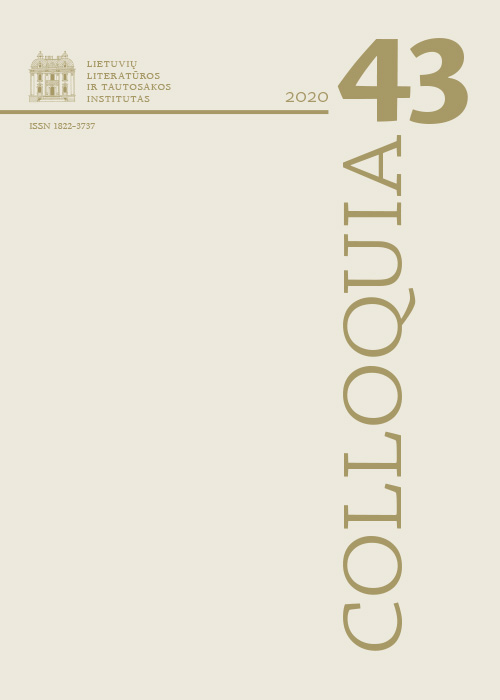Poetic Codes of the “Žemininkai” Group in Jonas Juškaitis’s Poetry
Abstract
The article analyzes the revival of the “Žemininkai” group tradition in Jonas Juškaitis’s poetry. A somewhat metaphorical concept of “codes” is understood as a set of dominant themes and poetic features which allows to identify the generation of the “Žemininkai” poets and specify its influence in Soviet poetry. The “Žemininkai” poets formed as a poetic generation in the pre-war and WWII years. It was during that time when their poetic “code,” which asserted the cult of the land, openness to Western European culture and stood out for its existentialist poetry had emerged.
Juškaitis adopted from the “Žemininkai” the sense of adoration of the land and its abundance (which in a way resembles Bradūnas and Mačernis). The archaic nature of the worldview, the constant signs of sacredness in the landscape and the dimension of past times can be easily traced in his poetry. Of all the “Žemininkai’ poets, Mačernis (especially poetic cycle of “Visions”) is the closest to Juškaitis.
The deeper analysis of the human existence links Juškaitis’s poetry with the “Žemininkai” poets even more. The intensity and distinctive expression of its most important themes, time and death, are similar to the poetry “Žemininkai.” Juškaitis differs from the “Žemininkai” group by focusing on ethical issues and the newly revealed relationship between the individual and the nation. His poetry is more sociable and reflective of everyday life.




